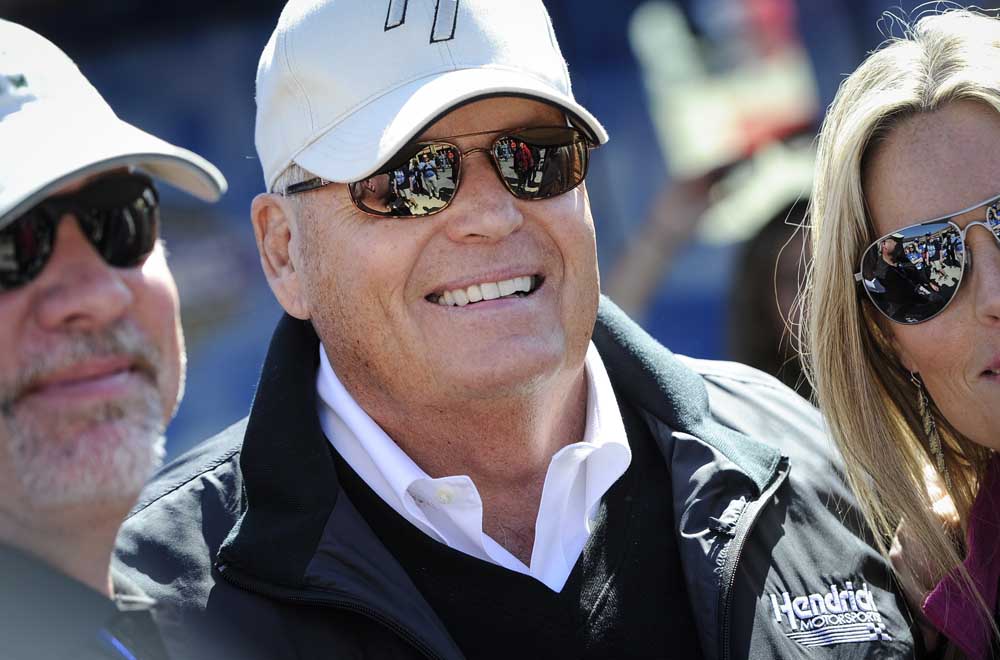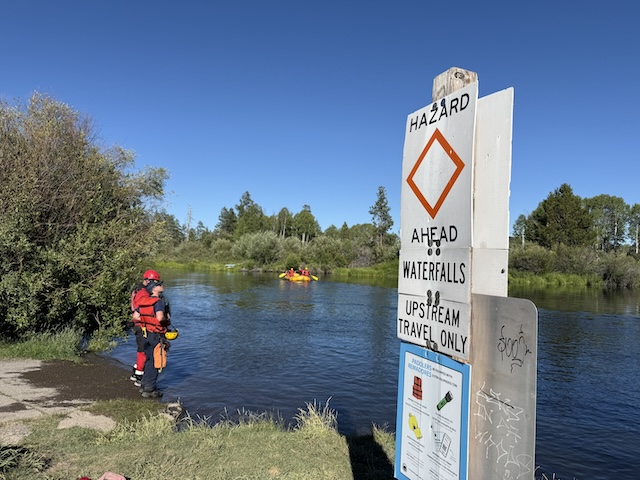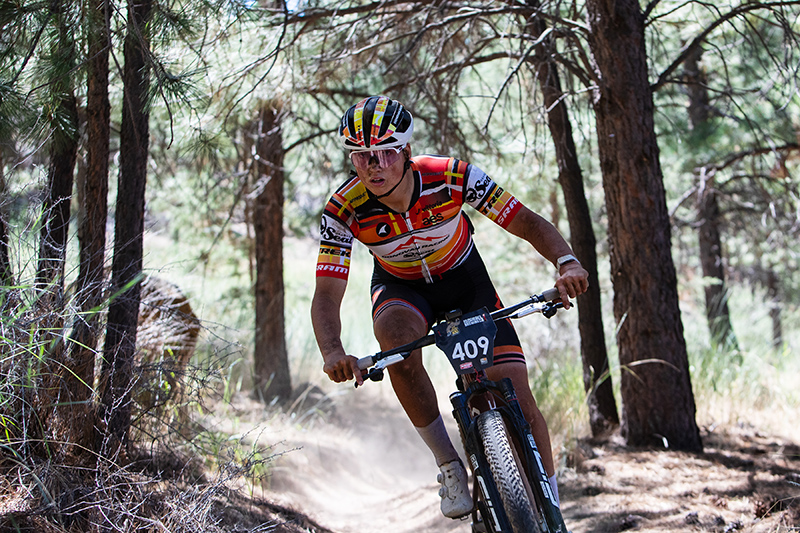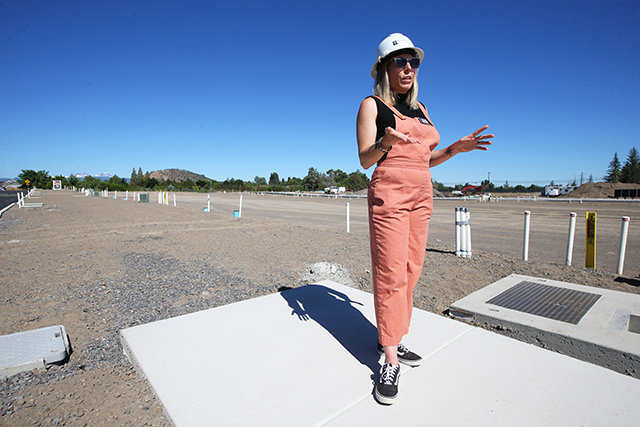Rick Hendrick, from teen tobacco farmer to NASCAR Hall of Famer
Published 12:04 am Friday, January 20, 2017

- Hendrick
CHARLOTTE, N.C. — Rick Hendrick, who will be inducted into the NASCAR Hall of Fame here today, grew up on a tobacco farm near Palmer Springs, Virginia, in the southern part of the state near the North Carolina border.
And he hated working on the farm.
Trending
When Rick and his brother John were teenagers, their father made each of them responsible for working a quarter-acre section of the farm, earning a nominal amount of money from their dad for their efforts.
“I didn’t know what I wanted to do in life, but farming wasn’t it,” Hendrick said. “Working tobacco is the toughest thing to do, the hardest work. In the summertime it’s hot and you get the wax on your arms during the harvest. I just couldn’t stand it.”
When Hendrick was 16 in 1965, he came up with an idea on how to get out of working on the farm. A section of Interstate 85 was being built near Palmer Springs, and Hendrick saw that maintenance was needed on some of the construction equipment. Hendrick was skilled at working on engines: That same year he would win the Virginia division of an engine-building contest sponsored by Chrysler-Plymouth.
So Rick approached his dad, known as “Papa Joe,” with an idea.
“I told him I’d like to go over there and be a mechanic’s helper,” Hendrick said. “If I hire somebody to work in my place on the farm, can I go work on the construction site and make more money? Dad said, sure.”
Hendrick found somebody to take his place on the farm while he helped fix engines on construction equipment.
Trending
“I used my sales skills back in those days to get out of farm work,” Hendrick said. “I had to pay the guy, but I netted more than him. And my dad got better labor!”
More than 50 years have passed since that summer. Hendrick, now 67, has prospered on two parallel paths — as owner of both Hendrick Motorsports and a chain of successful auto dealerships.
“I grew up loving automobiles,” Hendrick said. “The two companies work really close together. That’s been something that I’m so proud of.”
On the NASCAR side, Hendrick drivers have won 16 championships across the sport’s three national series, including a record 12 in Cup racing (won by Terry Labonte, Jeff Gordon and Jimmie Johnson). The most recent came in 2016, when Johnson won a record-tying seventh Cup title.
“We won our first championship in 1986,” said Richard Childress, another team owner who will be inducted in the Hall of Fame today. “And that was about the time Rick came in. He’s said (to me) before, ‘Hey, man, you were the goal we were shooting for.’ And today they are the goal we all are shooting for.”
By 1965, Hendrick had long since taken an interest in racing, not just in building and maintaining engines, but also driving. He was a drag racer and had started breaking speed records at a local strip in a 1931 Chevy when he was 14.
Hendrick and Papa Joe converted an old schoolhouse near the family farm into a race shop.
The Hendricks rode around the Southeast going to races, often helping teams and drivers in the pits. That is where Rick was truly bitten by the racing bug.
After graduating from high school (where he was also a pretty good baseball player), Hendrick went to N.C. State, where he attended a co-op work study program. While in Raleigh, Hendrick opened a used-car lot. Soon, he had his own Chevy dealership in Bennettsville, South Carolina.
As his car business grew — the Hendrick Automotive Group now has more than 100 franchises — Hendrick moved into NASCAR team ownership. The first race for his new team was the 1984 Daytona 500.
“I couldn’t have felt more out of place,” Hendrick said.
Hendrick said two instances truly launched his career in NASCAR. The first came in 1984, Hendrick’s first year as a team owner, at Martinsville Speedway in Virginia. Racing without a sponsor, Geoff Bodine made Hendrick a winner for the first time.
The second came one day in 1992 at Atlanta Motor Speedway, where he spotted a young driver roaring and spinning through the corners, somehow keeping his car under control. The driver was Gordon, who soon signed with Hendrick and would go on to win four Cup titles before retiring.
“It sure didn’t hurt the day I saw Jeff Gordon run at Atlanta and hired him and got him in the company, he and (crew chief) Ray Evernham,” Hendrick said. “There have been a whole lot of contributions along the way, but I think Richard (Childress) would say having Dale Earnhardt in his camp was a big deal — having Jeff Gordon and Jimmie Johnson in my camp is a big deal, and of course Terry Labonte and all the other drivers. I’m glad that Geoff Bodine was brave enough to step up when we didn’t have a sponsor.
“So, I’d say outside of Martinsville, to be able to discover a guy like Gordon was a big deal.”
The arc of Hendrick’s story has not always been smooth. In 1996, he was diagnosed with chronic myelogenous leukemia, a condition doctors told him had a 95 percent fatality rate.
Hendrick has been in remission since 2000 and still has blood work done every 90 days.
In 1997, Hendrick was convicted of mail fraud for his role in a bribery and kickback scandal involving American Honda Motor Co. Hendrick admitted to giving hundreds of thousands of dollars in cash, cars and houses to Honda executives but said he received nothing in return. He served 12 months of home confinement (because of his leukemia diagnosis) and paid a fine of $250,000. He was pardoned in 2000 by President Bill Clinton.
In 2004, Hendrick’s son Ricky — a promising driver in his own right — was killed in an airplane crash near Martinsville along with nine other family members and friends. Among the others who died were Hendrick’s brother John and his two daughters, as well as Hendrick Motorsports lead engine builder and close friend Randy Dorton.
It was a crushing blow to Hendrick, his wife, Linda, and the entire organization.
“There is nothing in the world like going through losing a son or members of your family — it’s the toughest thing in life,” Hendrick said. “The leukemia, it’s something you kind of fight your way through it. I was swept up in another issue that happened, and I loved getting that behind me and went on.
“So every trial and tribulation in life teaches you something. But nothing prepares you to lose a son.”
Hendrick said making the Hall of Fame is an honor not just for himself, but for everybody who accompanied him on a journey that began on a tobacco farm in Virginia.
“I’m truly humbled,” he said. “When you love something, you look at the people that helped you build it, the folks that have worked and grown up in the business with you. It’s such an honor. You really don’t want to disappoint them.”








